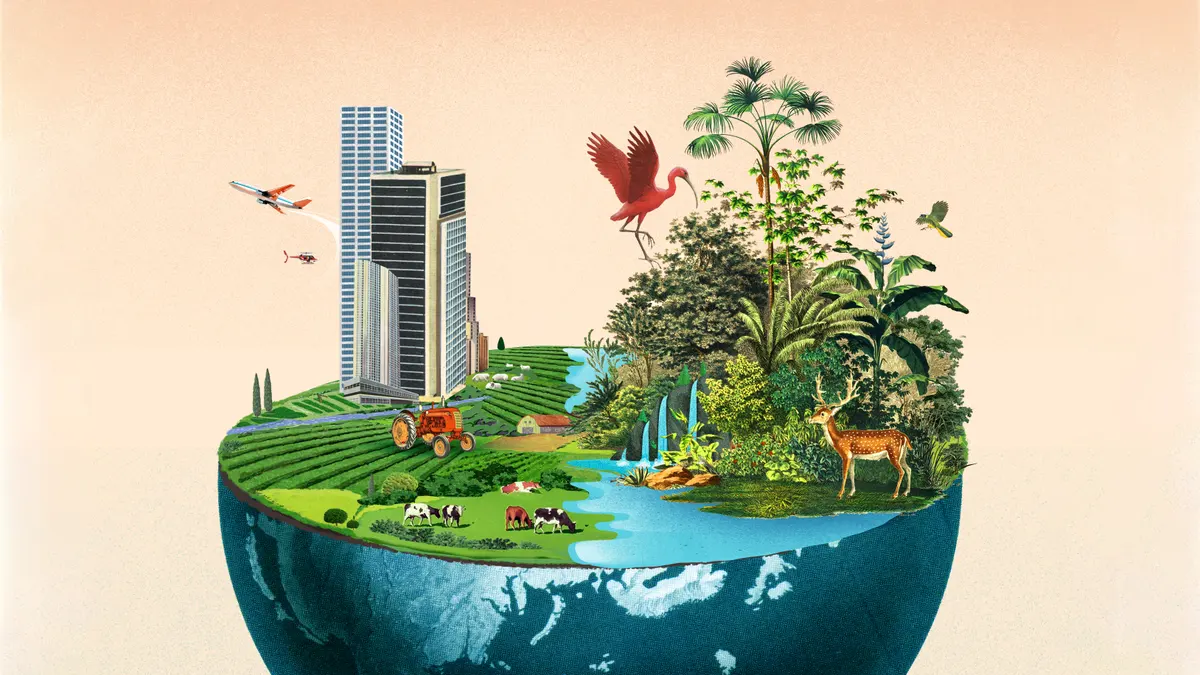Now Reading: Earth’s Silent Crisis: Why Biodiversity Loss Threatens Us All 2025
-
01
Earth’s Silent Crisis: Why Biodiversity Loss Threatens Us All 2025
Earth’s Silent Crisis: Why Biodiversity Loss Threatens Us All 2025

Biodiversity, which includes all living species on our planet — animals, plants, insects, and microorganisms — is essential for a healthy and balanced environment. It supports the food we eat, the air we breathe, the water we drink, and even the medicines we rely on. Yet today, biodiversity is under serious threat. Scientists warn that the loss of biodiversity is becoming one of the biggest crises of our time.
What Is Biodiversity Loss?

Biodiversity loss means the reduction or disappearance of species in ecosystems around the world. It happens when plants, animals, or microorganisms become extinct or when their populations shrink so much that they can no longer play their natural role in the environment.
In simple words, when nature loses its variety, the whole system breaks down. Think of it like a puzzle: if you lose too many pieces, you can no longer see the full picture.
Why Is Biodiversity Loss Happening?
There are many reasons why biodiversity is declining. The biggest drivers include:
Habitat destruction – When humans cut down forests, drain wetlands, or build cities and roads, animals and plants lose their homes.
Pollution – Chemicals from farming, industries, and waste harm animals and plants. Plastic pollution in oceans, for example, kills countless sea creatures.
Climate change – Rising temperatures, changing rain patterns, and extreme weather events disrupt entire ecosystems.
Overexploitation – Overfishing, illegal hunting, and the trade in wild animals push many species to the edge of extinction.
Invasive species – When humans move animals or plants from one place to another, they sometimes harm local species that cannot compete or defend themselves.
The Alarming Numbers
The numbers paint a worrying picture. According to the United Nations, around one million plant and animal species are at risk of extinction. Some scientists believe we are entering a “sixth mass extinction,” driven by human activity rather than a natural event like an asteroid.
Wildlife populations have declined by more than 60% on average since 1970, based on global surveys. Coral reefs, rainforests, and grasslands are disappearing faster than ever before.
Why Should Humans Care?
Some people may ask: “Why does biodiversity matter for humans?” The answer is simple — our survival depends on it.
Food Security: Healthy ecosystems help pollinate crops, control pests, and keep soils fertile.
Clean Water: Forests and wetlands filter water and help prevent floods.
Climate Stability: Forests and oceans absorb carbon dioxide, slowing global warming.
Medicines: More than half of modern medicines come from nature, including plants and microorganisms.
Economic Benefits: Many industries, like tourism and farming, rely on healthy nature.
When biodiversity is lost, these services collapse. For example, if bees disappear, we would struggle to pollinate many of the foods we eat, from fruits to vegetables.
Climate Change and Biodiversity Loss
Biodiversity loss and climate change are closely connected. When forests are destroyed, we lose not only the animals and plants that live there, but also one of nature’s best tools for capturing carbon. Meanwhile, climate change itself is driving even more biodiversity loss by making habitats too hot, too cold, too dry, or too wet.
Experts say tackling both climate change and biodiversity loss together is the only way to secure a safe future for humans and nature.
What Can Be Done?
There is still hope — but action is needed now. Here are some solutions experts suggest:
Protect more land and ocean areas – Governments can set aside nature reserves where wildlife can live safely.
Restore damaged ecosystems – Replanting forests or cleaning up wetlands helps bring life back.
Sustainable farming and fishing – Growing food without destroying nature is key.
Stronger laws – Enforcing laws to stop illegal wildlife trade and habitat destruction is critical.
Education and awareness – People must learn why biodiversity matters and how they can help.
Global cooperation – No country can solve this crisis alone. International agreements, like the UN’s Convention on Biological Diversity, are essential.
What Can You Do?
Even individuals can make a difference. Here are some simple steps you can take:
Support eco-friendly products and businesses
Eat less meat, as livestock farming uses huge amounts of land and water
Reduce plastic use
Plant native trees and flowers
Talk about biodiversity — the more people know, the more pressure there is on leaders to act
A Message of Urgency

Scientists have repeatedly warned that biodiversity loss is an emergency. It may not get the same headlines as war or economic crashes, but its impact on our lives will be far greater and longer lasting. Without urgent action, the world’s ecosystems could collapse, putting human health, food, and economies at risk.
If we lose nature, we lose our future.
Conclusion: A Fight Worth Taking
The fight to protect biodiversity is not just about saving cute animals or pretty flowers. It is about saving the systems that keep us all alive. By protecting biodiversity, we protect ourselves.
Governments, businesses, and individuals must act together. Every creature has a role to play in keeping Earth healthy — and so do we.
Let us not wait until it is too late to protect the incredible diversity of life on this planet. Because once it is gone, we cannot get it back.
Read More:- Deyaar’s Latest Announcement Shakes Up the UAE Property Market






















